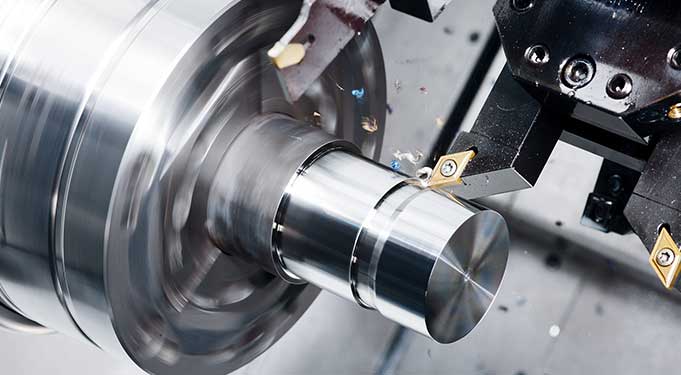Time to read: 6 min

Machining is a fundamental process in the manufacturing industry, where materials are removed from a workpiece to create precise parts and components. At Unofactory, we specialize in a range of machining services to meet the specific needs of our clients across different industries. This article will explore the various types of machining processes, their applications, and the benefits they offer.
What are Machining Processes?
Machining processes involve the removal of material from a workpiece using various cutting tools to achieve the desired shape, size, and surface finish. These processes are essential for producing parts with high precision and accuracy.
Types of Machining Processes
Machining processes can be categorized based on the method of material removal and the tools used:
-
Turning: Turning is a rotational machining process where a cutting tool moves parallel to the axis of the workpiece, creating cylindrical features.
-
Milling: Milling involves a rotating cutting tool that moves in various directions to remove material from the workpiece, creating flat or complex surfaces.
-
Drilling: Drilling is a process used to create holes in a workpiece using a rotating cutting tool called a drill bit.
-
Boring: Boring is a precision machining process used to enlarge existing holes with high accuracy.
-
Tapping: Tapping is a process used to create internal threads in a hole, allowing for the insertion of screws or other threaded components.
-
Grinding: Grinding is an abrasive machining process that uses a grinding wheel to remove material and achieve a high level of surface finish.
-
CNC Machining: Computer Numerical Control (CNC) machining involves the use of computer-controlled machines to perform complex machining operations with high precision.
Applications of Machining Processes
Machining processes are used in a wide range of applications across various industries:
- Automotive Industry: Machining processes are used to create precision components such as engine parts, transmission components, and suspension systems.
- Aerospace: In aerospace, machining processes are essential for manufacturing high-strength components and complex shapes that require precise tolerances.
- Medical Devices: Machining processes play a crucial role in the production of precision medical instruments and implants.
- Consumer Electronics: Machining is used to create components for electronic devices, such as cases, housings, and precision parts.
Benefits of Machining Processes
The benefits of using machining processes include:
- Precision: Machining processes can produce parts with high precision and accuracy, ensuring that components fit together perfectly.
- Efficiency: Automated machining processes can significantly reduce production times, increasing overall efficiency.
- Versatility: Machining processes can be used on a wide range of materials, including metals, plastics, and composites.
Conclusion
Machining processes are the backbone of modern manufacturing, offering precision, efficiency, and versatility in producing a wide range of parts and components. At Unofactory, we specialize in various machining processes to provide our clients with high-quality parts that meet their exact specifications. For expert guidance on machining processes and services, consider partnering with Unofactory, where precision and quality are our top priorities.




